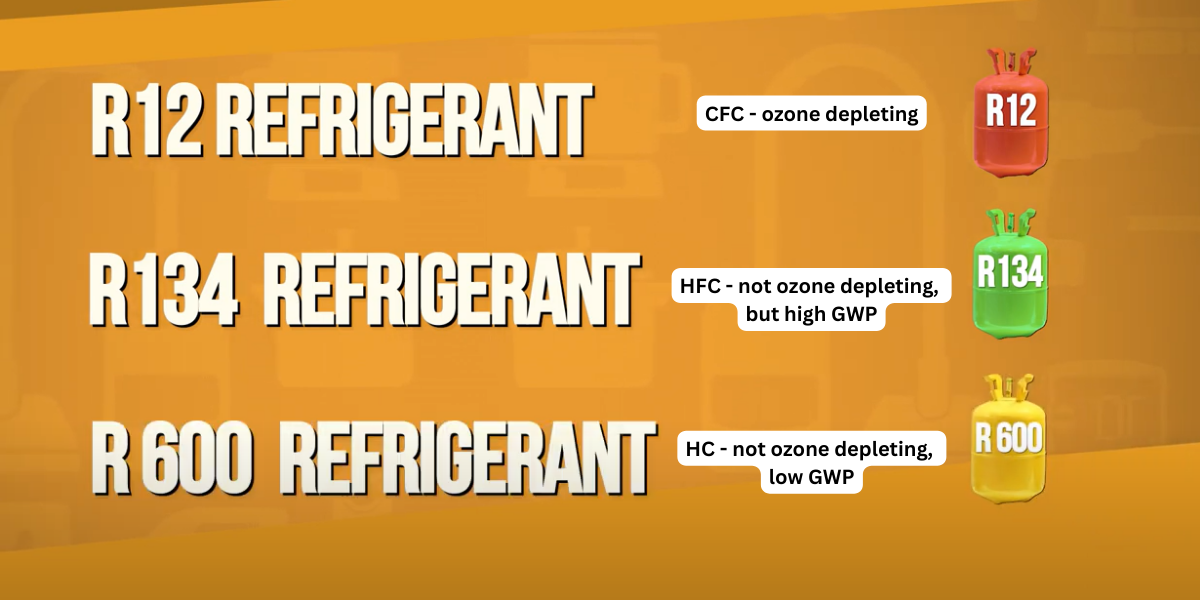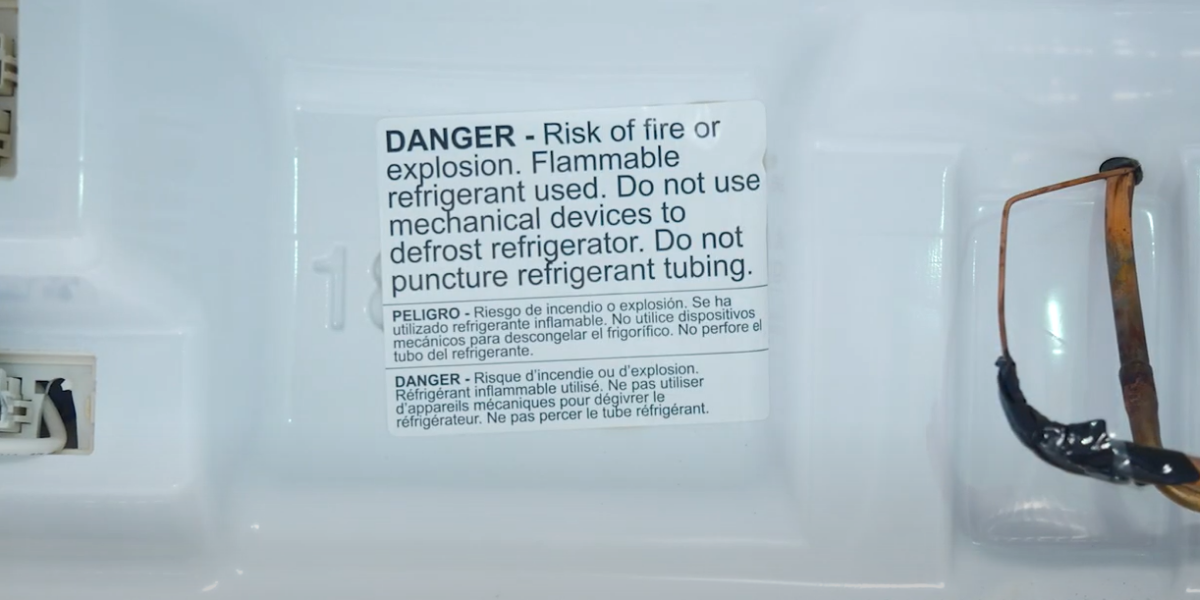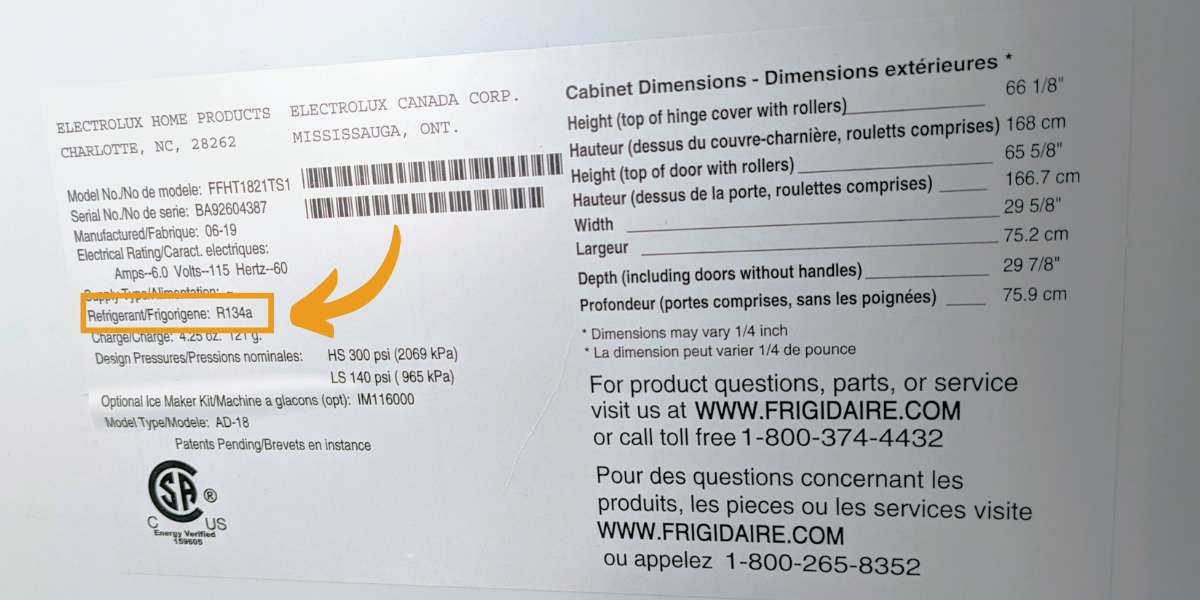Can a Fridge Explode?
“Yes, but...” Here’s why you shouldn’t worry
You may have seen news articles lately about fridges exploding in residential homes. These explosions have destroyed the fridge and caused residual damage to the properties, such as blowing out windows or cracking walls. Why is this happening, and can this happen to your fridge? It is true that a fridge can explode, but it is very, very rare for it to happen. We sat down with our appliance repair expert, Chris, who has 40 years experience in the field to tell us more about these incidents. In this article, Chris will be answering your questions about exploding fridges, along with explaining why you shouldn’t panic!
A Brief History of Refrigeration
A fridge works by continuously compressing and decompressing a substance known as a refrigerant, from a liquid to a gas state. This process creates cool air, which is circulated through the fridge to keep your food fresh (or your freezer frozen). Refrigerants are found in most items that create cool air, such as HVAC systems, fridges and freezers, and in cars with air conditioning.
In the early days of air conditioning (about a century ago), automobile manufacturers needed a refrigerant that was non-flammable and non-toxic. Propane is one of the best refrigerants, but it is highly flammable (there’s a reason we cook with it instead!). The resulting invention is called R12, which is commonly referred to by the trademark brand, Freon. R12 is odorless, nontoxic, and nonflammable – sounds perfect, right? It was even being used for non-refrigeration related products such as inhalers and other aerosol products like hairspray. However, the issue with R12 is that it is a chlorofluorocarbon (or CFC), which is detrimental to the ozone layer.
CFCs have been phased out or banned since the late 1980s, and more environmentally friendly and energy efficient products have been developed. The CFC replacement refrigerant products are HFCs, or hydrofluorocarbons, one of the more commonly used being R134. HFCs do not deplete the ozone layer, but they do still have what is known as Global Warming Potential (GWP) due to the heat they trap in the atmosphere. Now in the 2020s, products with HFC refrigerants are being phased out in place of ones with a low GWP.
The next phase in refrigerants are hydrocarbons (HC) and the commonly used one is known as R600, or isobutane. This refrigerant is also odorless, nontoxic, and very energy efficient, but it is highly flammable. This is where the issue of exploding fridges comes into play.

What Causes a Fridge to Explode?
Since the isobutane refrigerant (R600) is flammable, it does have the potential to cause a fridge to explode. Fridges containing R600 have warning labels inside of them stating that there is a risk of fire or explosion. For that to happen, it will take a very specific set of requirements. First there needs to be a gas leak, the gas needs to be contained within the fridge, and then there needs to be something to ignite the gas.
For the gas to leak there would have to be damage to the evaporator found within the fridge. Since the R600 is heavier than air, it will drop down to the lowest part of the fridge. There are only 1.5 ounces of this refrigerant used, so if you’re opening the fridge door frequently that gas would dissipate quickly. For the gas to ignite, it would require something to create an arc, like a thermostat turning on or off, or a defrost cycle starting, while there is a buildup of gas inside the fridge.
Having these circumstances line up to cause a fridge explosion is extremely rare. R600 was introduced in the early 1990s and will soon be the standard for refrigerants with new requirements being introduced in the 2020s. Consumers have been using gas appliances and home heating products like ranges, dryers, and furnaces for decades now. All of these have the potential for fire or explosions, but we continue to use them without fear for the comfort, convenience, and energy efficiency they provide. Owning a refrigerator containing a flammable gas is no different, and the likelihood of an explosion happening is extremely rare.

Chris Answers Your Exploding Fridge Questions
Our appliance repair expert has over 40 years of industry experience, so he's seen the evolution of fridges from R12 to R600. We sat down with Chris and had him answer questions submitted by our readers on the topic of exploding fridges.
Can you see a refrigerant leak?
The refrigerant is put into the fridge and measured as a liquid, but it constantly cycles between liquid and gas form. Were there to be a leak, you would not see or smell it happening. What you would notice however, is the lack of cooling occurring in your fridge. Items in your freezer would be thawing and your fridge would be warm.
Does it matter if your freezer is on the top or bottom of your fridge?
When it comes to a gas leak causing your fridge to explode, no it does not matter if your freezer is located on the top or bottom. Because the gas is heavier than air, it’s going to drop to the bottom of the unit either way.
Is there anything a homeowner can do to prevent this?
No, there’s nothing specific a homeowner can do in advance to prevent something like this from happening. As far as keeping your fridge running efficiently, cleaning the condenser coils on the back of the fridge is a great general maintenance idea. The evaporator coils inside the fridge are protected with a panel wall, so the risk of puncturing them and causing a leak is unlikely. If a leak occurs, it is most likely a manufacturing defect. If the fridge is cooling and the freezer is freezing, there’s no reason to assume that there is anything wrong or that your fridge will explode.
How do I know if my fridge has R600?
Inside your fridge is a model plate sticker. This shows things like your model number, serial number, and it will show the type of refrigerant used in the fridge. If your fridge is a newer purchase, it likely has R600a. If your fridge is a few years old, it may still have R134a inside which isn’t a flammable product. Try scanning your model plate with the Fix App, and you’ll be notified right away if there’s ever a recall on your fridge!

While it’s important to be informed of any risks you’re exposed to, we want to reiterate there’s no need to throw away all your kitchen appliances from fear of explosions. Again, the circumstances needed for that to happen are very rare! Just think, every home and business has at least one fridge inside yet there are only a handful of explosion reports ever to occur. The energy efficiency and environmental benefits of using the R600 far outweigh the risk.
